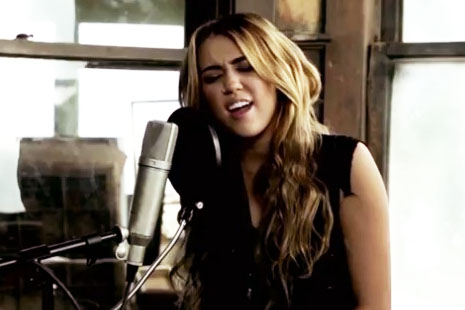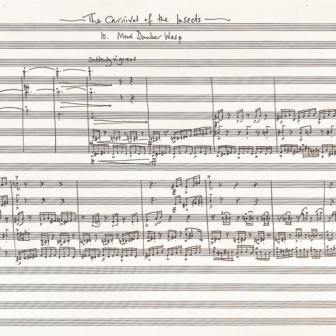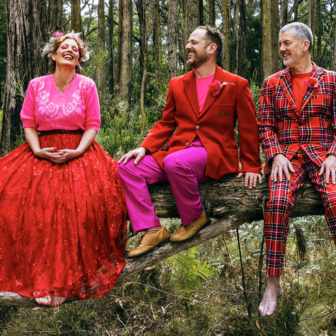IN A single week we have new albums from Bob Dylan and Paul McCartney – well sort of. The Dylan album features the songwriter’s vocals on only two tracks (one adding backing to Johnny Cash), while McCartney’s CD includes only two original songs. There are some who would say we should be grateful for small mercies. It’s been a while since Dylan possessed anything resembling a tolerable singing voice and even longer since McCartney wrote a decent song. So why bother with these new releases at all? The answer is that both are pretty good.
The Dylan album – four discs at budget price – is Chimes of Freedom, issued by Amnesty International to raise awareness and money on its fiftieth anniversary. Appropriately, 2012 also marks fifty years since Dylan released his eponymous first album. The seventy-three numbers (seventy-six if you download the thing) span Dylan’s career and apart from the title track, which is his original 1964 version from Another Side of Bob Dylan, they are performed by artists ranging from the ninety-two-year-old Pete Seeger (“Forever Young,” with a children’s choir) to Ke$ha, Adele, and Miley Cyrus, who are young enough to be Dylan’s granddaughters.
If the sound of Dylan’s voice was always the most striking thing about him, it was evident from the very start that if you took that voice away, the words and music still worked. At the beginning of the 1960s, Joan Baez popularised Dylan’s earliest songs, while later that decade his material provided multiple hits for the Byrds and Manfred Mann. Also from the start it was clear that these songs stood up to a wide range of interpretations, the Byrds’ “Mr Tambourine Man” and Manfred Mann’s “Mighty Quinn” as different from their creator’s versions as Jimi Hendrix’s “All Along the Watchtower” was from Olivia Newton-John’s “If Not for You.”
The new album offers further proof of the resilience and adaptability of Dylan’s songs on track after track. A few of the performances, it’s true, stick reasonably closely to Dylan’s originals. Steve Earle, We Are Augustines and Maroon 5 are strong and faithful in, respectively, “One More Cup of Coffee,” “Mama, You Been on My Mind” and “I Shall Be Released,” but they don’t exactly shine new light on the songs. Cage the Elephant, on the other hand, with their slight trippy version of “The Lonesome Death of Hattie Carroll,” gives the song a wholly new, if totally inappropriate, feel, as does Philip Glass with his arrangement for the Kronos Quartet (plus electric sitar) of “Don’t Think Twice It’s All Right.” “I’d Have You Any Time,” which was always more George Harrison than Dylan (they jointly wrote the song for Harrison’s All Things Must Pass) is easily and effectively turned into cocktail jazz in John Altman’s arrangement for the actor Evan Rachel Wood.
Standouts? I’d pick Carly Simon singing “Just Like a Woman,” as memorable for Julie Wolf’s inventive piano (and accordion) playing as for Simon’s mix of vulnerability and dry, wry humour, Elvis Costello’s gentle, synthetic reggae on “License to Kill,” and those young women – Ke$ha (“Don’t Think Twice”), Adele (“Make You Feel My Love”) and, blow me down, Miley Cyrus. Now I’m not sure I’d ever want to hear Miley sing “Like a Rolling Stone,” but her performance of “You’re Gonna Make Me Lonesome When You Go” is absolutely gorgeous.
On the subject of recordings I wasn’t expecting to like, McCartney’s Kisses on the Bottom is really rather good. The basic conceit is McCartney’s revisiting of the songs his mum and dad used to sing at family parties, so we have “Ac-Cent-Tchu-Ate the Positive,” “It’s Only a Paper Moon” and “Bye Bye Blackbird,” as well as a couple of Fats Waller tunes (the album’s title, in case you’re wondering, is a line from “I’m Going to Sit Right Down and Write Myself a Letter”). There is also a couple of rather disappointing original tunes.
It is hard to believe this is the same man who belted out “Can’t Buy Me Love” and “Back in the USSR.” Of course this collection of tunes was never going to require McCartney the rocker, but the intimate, boyish charm that characterised “Michelle” and “Yesterday” is also gone. In its place is a slightly husky light tenor that brings a sort of faded glamour to Irving Berlin’s “Always” and dry-eyed nostalgia to Frank Loesser’s “Inch Worm.” But it’s at its best in those Fats Waller songs where it is charm personified. None of which would be quite enough, it seems to me, were it not for a band featuring guest appearances by John and Bucky Pizzarelli, Christian McBride and Eric Clapton, with orchestrations by the likes of Johnny Mandell. Leading them is pianist Diana Krall, who also contributes some of the most necessary notes of her recent recordings to what is, on paper, a wholly unnecessary enterprise. Between them, McCartney and Krall make you want to listen again and again. •




